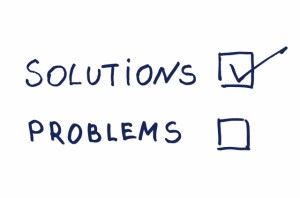
<La version française suit>
Everyone seems to be talking about the COVID-19 and increasingly your Olympics are being pulled into the conversation. As your Chef de Mission, I want you to know that our priority is the health and safety of every Team Canada member. Stay focused on your preparation, the Tokyo 2020 Games are still very much on. As we all do with all the unplanned events that happen between now and the Games – we will assess and respond accordingly. Talk to your coaches and team leaders; be informed, and try not to let all the speculation distract you. The night before my Olympic final in Atlanta, a bomb went off tragically killing and injuring people. I woke not knowing if there would be delays or cancellations to my race; we didn’t know until we got to our venue what was going to happen. I’m glad we chose to stay focused and arrive ready; it was a gold medal day. The current situation is more drawn out which allows for more uncertainty and speculation. The COC is working with the IOC and our own medical team on this quickly evolving situation to protect your health and performance. We are all in this together and will do our best to keep you informed.
There are less than 150 days until the Olympics. (How did that happen?!)
What’s your goal? When you are at the Closing Ceremony – how do you want to feel?
At the Sochi Olympics I had separate but similar conversations with two different athletes from completely different sports. A few days before their competitions, both athletes remarked that after everything they had done and everything they had been through – they just wanted to come off their field-of-play happy. (Both of these athletes were medalists from Vancouver, and… spoiler alert– both would win medals again in Sochi.)
Without question a gold medal was their target, but as veterans, they knew another goal had to be to “finish happy”. In competition – all you can control is you; we hope that our performance is the best out there. But you can’t control your competitors, the conditions or the judges… winning is uncontrollable. At the end of the day, regardless of the result – you want to know you did EVERYTHING that you could do to reach your goal. No matter what happens – at least part of you should be happy with knowing you did that.
So, separately over a coffee before their competitions began, we strategized about how to make “happy” happen. How do we finish happy and why is it important? Sure, winning alone can make you happy (and/or relieved) – but you can’t walk onto your field-of-play feeling that something isn’t right and expect sport to magically make you happy. That’s your job. That’s on you to control. Odds are high that if you weren’t happy starting the competition it’s because you know something has been left undone. So… if the goal is to come off the field-of play happy– these veterans knew that it was important to go onto the field-of-play happy. They also agreed it’s easier to win that way! <wink>
How?
Continue reading
 In many different ways I’ve written about being open to new ideas and change. In my book I shared a story about snowboarding through a gladed run. This particular story spoke of the importance of looking and moving to the spaces around the problems and not looking at the problems themselves. If you want to hit the trees, I concluded – look at the trees. If you want to ‘hit’ the fresh powder, well then …
In many different ways I’ve written about being open to new ideas and change. In my book I shared a story about snowboarding through a gladed run. This particular story spoke of the importance of looking and moving to the spaces around the problems and not looking at the problems themselves. If you want to hit the trees, I concluded – look at the trees. If you want to ‘hit’ the fresh powder, well then …